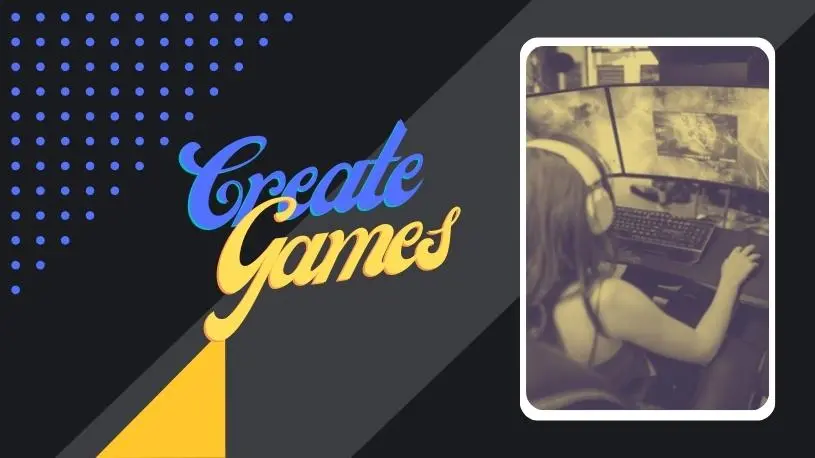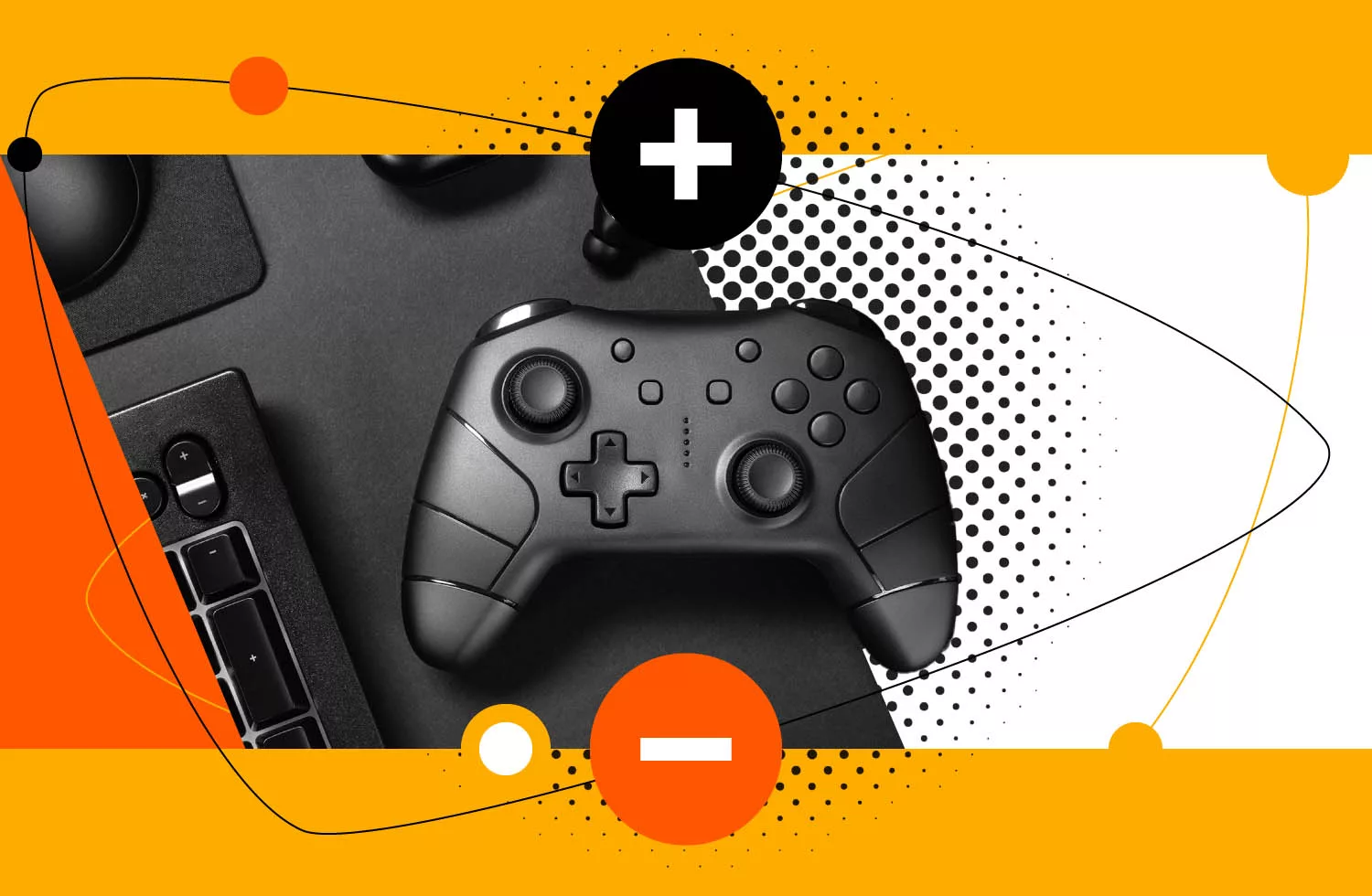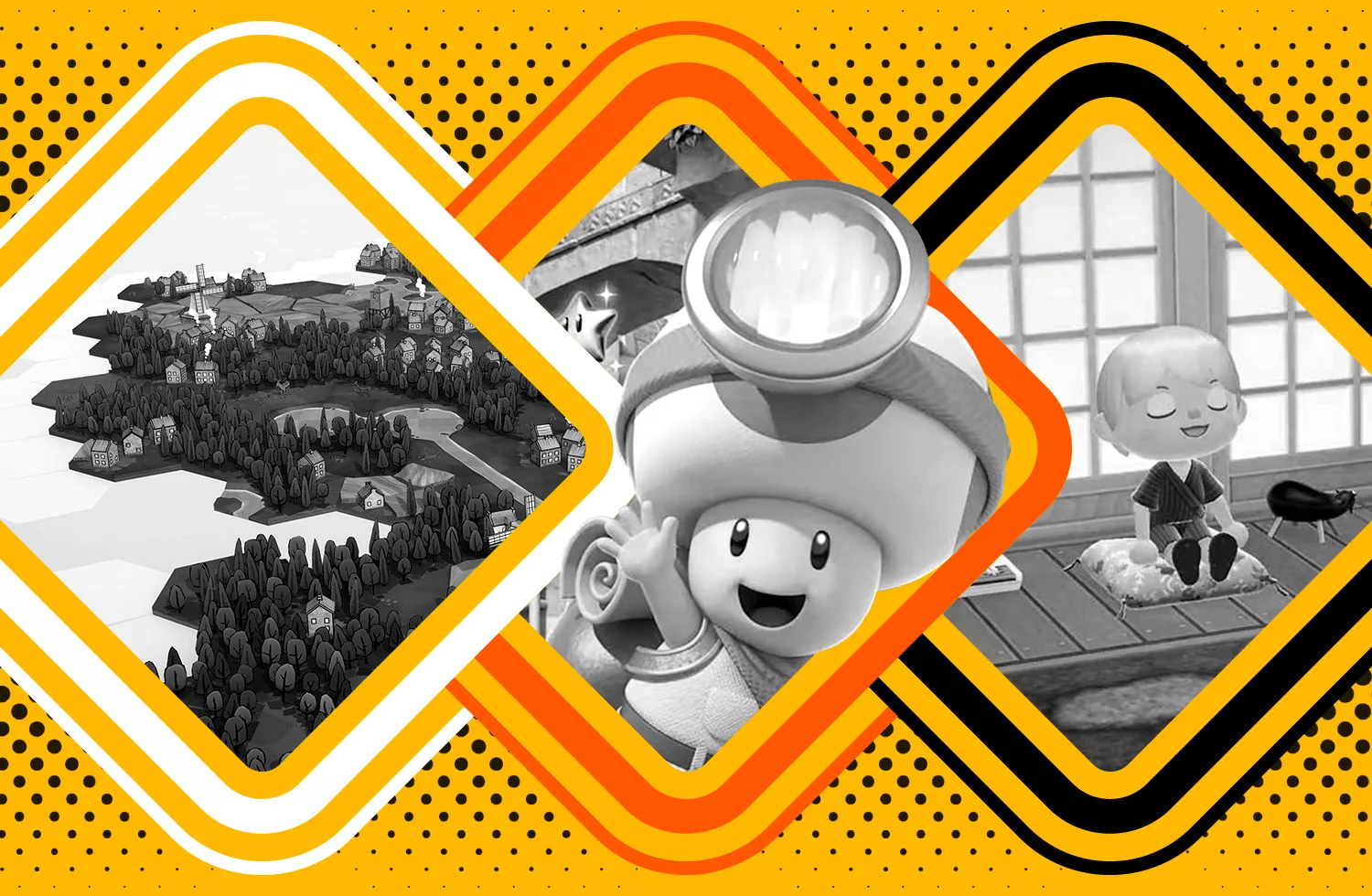
While it’s almost impossible to forge a career based on ideas alone, almost every good business or creative endeavor begins with one.
This is especially true in the world of video gaming, where studios are built around unique concepts and win or lose based on how popular those game ideas are within the wider world.
After all, at some point, Mario and Sonic were just daydreams in some designers’ brains.
Bringing ideas to life is always tough. As video games tend to be multifaceted beasts, requiring a host of different skills and/or individual experts, knowing how to make a game and putting that knowledge into practice are two entirely different things.
Today, though, we’re going to put together a quick introduction to game design so that you can start learning how to make a game independently.
1. Play Everything, All the Time
First of all, there’s nothing wrong with starting out without a refined idea. In fact, it could be argued that playing games in a genre you’d like to emulate is the first and only thing you should be doing when you start learning how to make a video game, as it helps shape thoughts you might have.
This is true of every hobby that requires inspiration as a starting point. There’s a reason Stephen King reads eighty books a year. Don’t stick to one genre either, even if learning how to create a game in the RPG or strategy games niche is a known objective.
Ultimately, the game you create will need to be a hybrid of what you want to play and what’s attractive to other genre fans. That is, of course, unless you’re only learning how to make a game for yourself.
2. Start Journaling
One of the most daunting aspects of learning how to make a game is how some tutorials tend to phrase things. Game design documents, business plans, or any particular qualifications are not required to create a game.
However, it’s important to have a place to organize your thoughts and game ideas. Keep a notebook, an Excel file, or a desktop wiki such as Zim and jot down the elements that attract you to each individual title you play.
Maybe it’s PVP games or the option to fight and/or romance aliens. It’s up to you. There has been a pigeon dating simulator out there, after all. The game Subnautica by Unknown Worlds was pulled into shape on list-making site Trello.
Five decades after the release of Pong (1972), there are arguably no truly original ideas left in video gaming, so it’s the little quirks and new perspectives that elevate a game to superstardom. You’ll learn more about this when you learn how to make your own game.
3. Gather Your Party (Optional)
In Dungeons & Dragons-based games like Baldur’s Gate, it’s impossible to proceed to a new area if one or more members of the adventuring party are missing.
Of course, students learning how to make a game can proceed solo, but it doesn’t change the fact that video games are the ultimate in group projects.
Like-minded friends may be able to offer skills that you do not currently possess, such as coding or artistic abilities. If nothing else, getting together some people to exchange game ideas is a fun way to fill an evening.
Places like Reddit, Twitch, Discord, and any forum dedicated to modding can be useful places to hunt down a few extra party members, but don’t staff yourself out of a job. Too many helpers can get in the way of your goal to learn how to make a game.
4. Make it Go
Unity 3D, Unreal Engine, and Amazon Lumberyard are all inexpensive and professional game-making tools available to everybody interested in learning how to make a game.
However, note that the engine and coding language you end up using will almost definitely be a singular decision. Unity 3D only supports Java and C#, for instance, while Unreal Engine requires skills in C++, a powerful but rather cumbersome example of a programming language.
For somebody learning how to make a video game, Unity3D is by far the best choice due to the wealth of documentation available.
A quick note of caution – engines can be overwhelming due to the number of things they can do, so it’s always best to get used to the interface before starting with anything more advanced. Understanding what an engine does is a separate skill from knowing how to make a game.
5. Learn
Tutorials are at the heart of every creative hobby, whether it’s crochet, painting, or building things with clay.
As a novice who is otherwise unattached to the wider video game industry, YouTube, Udemy, Skillshare, and similar sites will serve as your primary method of learning how to make a game.
It’s important to keep learning costs down at such an early stage though, as, if you’re going to drop out of video game design as a hobby, it will almost certainly happen in the first few days or weeks.
The latter concern, keeping costs down, is an important thing to remember throughout your game design career. Unity 3D and many other well-known engines will allow you to make an entire game for free, provided that you have all the skills necessary to do so.
As a starter, learning how to make a game with code and, separately, use an art program such as Inkscape or Adobe Illustrator will allow you to outline some characters or locations. This will help you avoid the dreaded programmer art while you’re learning how to make a game.
6. Bring it to Life
While this part is often considered the hardest bit of game development, it’s important not to segment building from the other parts we’ve covered in our list.
Ideas will form and concepts will change as you’re learning how to make a game, so attempting to set things in stone early on can cause problems.
There are at least three development versions of Resident Evil 4, for instance, one of which became the action-platformer Devil May Cry. Let’s not forget that the Creeper mob in Minecraft was born from an incorrectly coded pig, too.
Coding in an engine takes a long time and projects will fall to pieces every now and again, largely because computers are logical creations and need to be told precisely what to do.
Ironically, this usually requires a bit of abstract thinking for humans to understand and can be one of the harder parts of learning how to make a game.
Viewing video games through the lens of a player exclusively is perhaps why so many people think they can do it better than the developers and publishers that put their livelihoods into the process.
However, knowing how to make a game of any size and complexity takes time, patience, and effort. Watching a character you’ve coded jump or move for the first time is a rewarding feeling though, especially if it marks the first leap on the journey to becoming a fully-fledged game developer.
Time to Get Going!
We hope you’ve enjoyed reading this short guide about how to make a game in a modern engine. Games of every description can only get more popular so knowing how to make a game app is both a great career option and an enjoyable hobby.











